
AN EXAMINATION OF THE EMERGENCE AND
DEVELOPMENT OF THE ACCOUNTING PROFESSION IN
DEVELOPING COUNTRIES: THE CASE OF SRI LANKA
A Thesis Submitted
In Fulfilment of the Requirement for the Degree of Doctor of
Philosophy
SARATH LAL UKWATTE JALATHGE
B.COM (SPECIAL) - University of Sri Jayewardenepura, Sri Lanka
Post Graduate Diploma in Public Financial Management - Institute of
Development Administration, Sri Lanka
MA (International Business & Economics) (Outstanding Thesis
Award) – University of Kyung Hee, South Korea
School of Accounting
College of Business
RMIT University
Melbourne
Australia
June 2012

ii
DECLARATION
I certify that except where due acknowledgement has been made, the work is that
of the author alone; the work has not been submitted previously, in whole or in
part, to qualify for any other academic award; the content of the thesis is the result
of work which has been carried out since the official commencement date of the
approved research program; any editorial work, paid or unpaid, carried out by a
third party is acknowledged; and ethics procedures and guidelines have been
followed.
Sarath Lal Ukwatte Jalathge
July 2012

iii
ACKNOWLEDGEMENT
I would like to express my gratitude to a number of individuals and institutions
who have given support and encouragement for the completion of this thesis;
without their support I would not have been able to successfully complete this
research program.
I am particularly indebted to my first supervisor, Associate Professor Prem Yapa,
whose knowledge and constructive guidance were essential in directing me onto
the right path for this research project. His continual support, criticism, comments
and encouragement were instrumental in developing my depth of knowledge on
accounting professionalization processes in the world, especially Sri Lanka. In
addition, his careful reading, constructive comments on the various drafts and his
enthusiasm during the period of researching and writing the thesis have helped me
to expand and strengthen my research ability.
I am thankful to my second supervisor, Dr. Daryll Cahill, for his constructive
comments on the final draft of the thesis. I also wish to express my indebtedness
to my previous second supervisor, Professor Sheila Bellamy, for her enormous
academic guidance, especially her comments and suggestions on the early stage of
construction of Chapters.
The friendly working environment in the school of accounting was also
unforgettable. I would like to express my sincere thanks to the Head of School,
Professor Garry Carnegie, and Director Research Professor, Paul De Lange, for
their enormous support throughout the project; I am also grateful to Miss Marita
Shelly for her effective coordination and administrative assistance.
My thanks also extend to the RMIT Research and Innovation Portfolio, Business
Research Office, especially the Research Administrative Officer, Prue Lamont,
and Kalpana Lalji (Office of the Pro Vice-Chancellor, College of Business) for
their assistance in administrative matters relating to my research. I am grateful to

iv
the RMIT scholarship program for their financial support, without which this
study would not have been possible.
I would like to thank all the interviewees in this study for their interest,
willingness, valuable time and knowledge in support of this study. Their
participation was greatly appreciated. Also my sincere appreciation must go to the
President, Council members and staff of the ICASL for their assistance in
providing information for this study. Also my sincere thanks extend to the ACCA
Sri Lankan President and President of the SCMA for their valuable insights into
this study.
I would like to extend my sincere thanks to Mr. Nimal Pandithakoralege, the
General Manager of Buffalo Trident, for enormous encouragement, appreciation
and the facilities that he provided to me until the end of this research project.
To my mother, brothers and sisters, for their good wishes that inspired me
throughout the study process. I also would like to mention all my friends specially
Dr. Chandana Hewege, Dr. Hemantha Rohitha and Dr. P.D.Nimal for their help
and encouraging advice throughout the time.
Lastly, but most importantly, I owe a debt of great gratitude to my wife, Pathmi,
my daughters, Umasha and Amaya, and my son, Thamindu, for their
understanding commitment, patience and moral support throughout the study.

v
TABLE OF CONTENTS
DECLARATION ................................................................................................... ii
TABLE OF CONTENTS ...................................................................................... v
LIST OF TABLES ............................................................................................... ix
LIST OF FIGURES ............................................................................................. xi
ABSTRACT ......................................................................................................... xii
ABBREVIATIONS ............................................................................................ xiv
Chapter 1: Introduction ...................................................................................... 1
1.1 Introduction ....................................................................................................... 1
1.2 Motivation ......................................................................................................... 5
Source: Author developed for the study ................................................................. 7
1.3 Conceptual Framework ..................................................................................... 7
Source: Author developed for the study ................................................................. 8
1.4 Problem statement ............................................................................................. 8
1.4.1 Research objectives .............................................................................. 9
1.4.2 Research questions................................................................................ 9
1.5 Rational for the study .................................................................................... 10
1.6 Benefits and contribution to the society .......................................................... 11
1.7 Research methodology .................................................................................... 13
1.8 Limitations of the study .................................................................................. 16
1.9 Organization of the thesis................................................................................ 17
Chapter 2: Review of literature on accounting professionalization processes
..................................................................................................................... 19
2.1 Introduction ..................................................................................................... 19
2.2 Development of accounting profession in developed countries ..................... 20
2.2.1 Accountancy profession in Britain ..................................................... 20
2.2.2 Accounting profession in Europe ....................................................... 25
2.2.3 Accounting professions in other developed nations ........................... 30
2.3 Development of accounting profession in British & French colonies and
Peoples Republic of China (PRC) .................................................................. 34
2.4 The relationship between State and the profession ......................................... 41
2.5 Universities and the accounting profession..................................................... 42
2.6 Domination of the accounting profession by British professional bodies ...... 45
2.7 Summary of the literature................................................................................ 47
Chapter 3: Theoretical Framework .................................................................. 49
3.1 Introduction ..................................................................................................... 49
3.1.1 Origin of professions .......................................................................... 49
3.1.2 Definition of the accounting professionalization process:.................. 52
3.1.3 Sociology of professions .................................................................... 54
3.1.4 Accounting profession from the perspective of the sociology of
professions ............................................................................................ 58
3.2 Creation of social class ................................................................................... 61
3.3 Legal monopoly of accounting practice .......................................................... 64
3.4 Social closure .................................................................................................. 67
3.5 Summary ......................................................................................................... 71

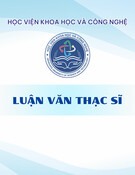
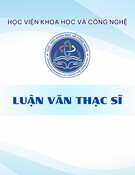
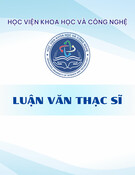
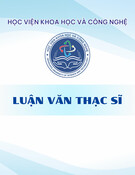
![Luận văn Thạc sĩ: Tổng hợp và đánh giá hoạt tính chống ung thư của hợp phần lai tetrahydro-beta-carboline và imidazo[1,5-a]pyridine](https://cdn.tailieu.vn/images/document/thumbnail/2025/20250816/vijiraiya/135x160/26811755333398.jpg)
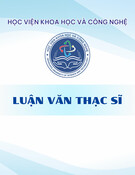
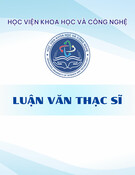
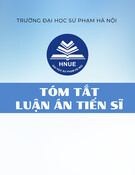
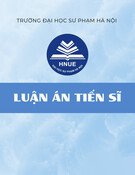
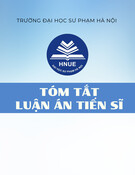











![Tóm tắt Đề án Thạc sĩ [chuẩn/mẫu/kinh nghiệm]](https://cdn.tailieu.vn/images/document/thumbnail/2026/20260120/hoaphuong0906/135x160/50661768882364.jpg)



